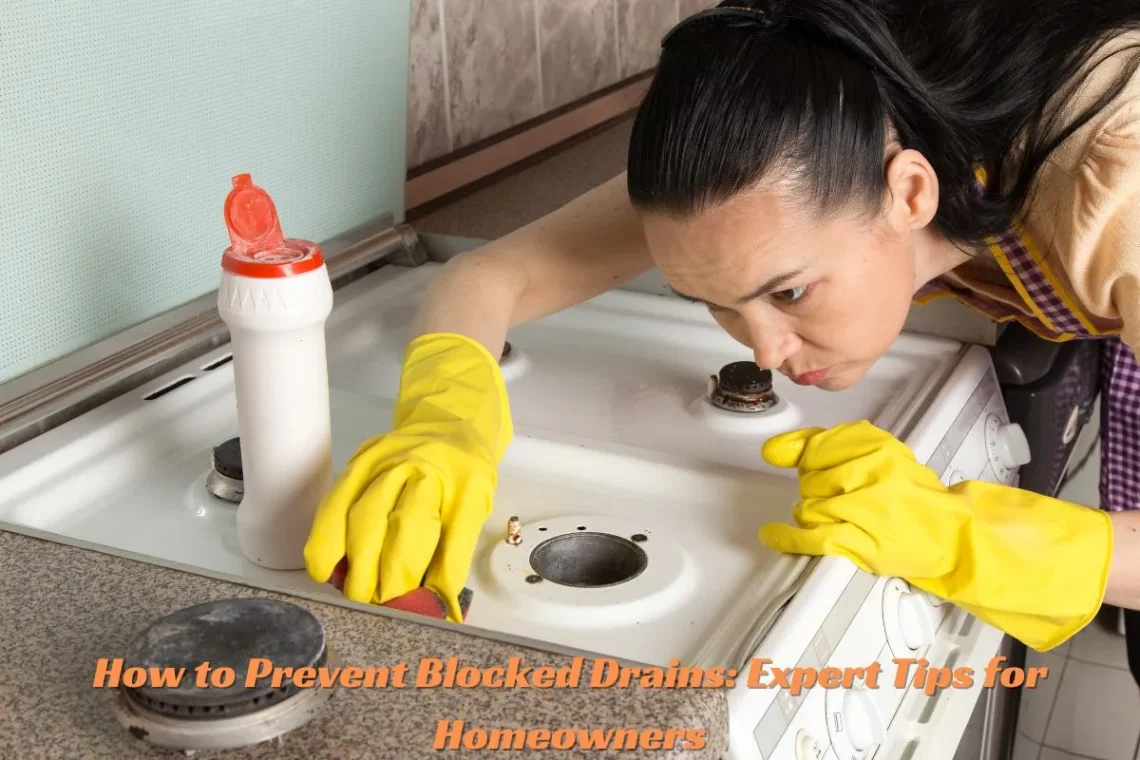
How to Prevent Blocked Drains: Expert Tips for Homeowners
Blocked drains are one of the most common and frustrating problems homeowners face. A slow-draining sink, a gurgling toilet, or a foul-smelling bathroom can quickly turn a small inconvenience into a costly repair. Beyond the immediate discomfort, persistent blockages can cause water damage, mould growth, and structural issues if left untreated. Fortunately, with a combination of good daily habits, regular maintenance, and professional support, homeowners can prevent most drainage problems before they escalate.
Table of Contents
ToggleUnderstanding the Causes of Blocked Drains
The first step to prevention is understanding what causes blockages. In bathrooms, hair, soap, and grease often combine to form stubborn clogs. Kitchen sinks face similar challenges, with food waste, oil, and grease accumulating in pipes over time. Outdoor drains are affected by leaves, dirt, and tree roots, which can infiltrate underground pipes and create blockages. Additionally, old or damaged plumbing increases the likelihood of clogs and can make even minor debris a serious problem. Recognizing these potential causes allows homeowners to take proactive measures and reduce the risk of blockages.
Simple Daily Habits to Prevent Clogs
Preventing blocked drains starts with simple daily habits. In the kitchen, avoid pouring fats, oils, and grease down the sink, as they solidify in the pipes and create stubborn blockages. Dispose of food waste properly, either through composting or in the trash, rather than letting it enter the drain. In bathrooms, avoid flushing non-degradable items like wet wipes, sanitary products, or cotton pads, which can easily cause clogs.
Using strainers or drain guards can catch hair and larger debris before they enter pipes, making cleaning easier and more effective. Educating family members about these habits is equally important, ensuring everyone contributes to keeping drains clear. Over time, these simple practices can prevent costly and inconvenient blockages.
Regular Maintenance Tips
Even with good daily habits, routine maintenance is essential. Flushing drains with hot water once a week helps to dissolve minor grease or soap buildup. Natural cleaning solutions, such as a combination of baking soda and vinegar, can be used monthly to keep pipes clean and fresh without harsh chemicals.
Additionally, periodic inspections by a professional plumber can identify potential problems before they become serious. Professionals can detect weak spots, leaks, and early signs of clogs that may not be obvious to the homeowner. Regular maintenance not only extends the lifespan of your plumbing but also ensures your home remains hygienic and safe.
When to Call a Professional
Despite your best efforts, there will be times when a professional is necessary. Signs of serious blockages include slow drainage across multiple fixtures, gurgling sounds in pipes, recurring foul odors, or water backing up in sinks, toilets, or showers.
Hiring a drainage expert in Kent can save time, money, and stress. Professionals use advanced tools such as CCTV cameras to inspect pipes, high-pressure water jets to remove blockages, and specialized equipment to clear tree roots or stubborn debris. While some minor clogs can be treated at home, professional intervention ensures that underlying issues are addressed properly and prevents repeat problems.
Preventing Outdoor Drain Blockages
Outdoor drains often require extra attention, especially during autumn when leaves are abundant. Regularly clearing gutters and surface drains prevents water from overflowing and flooding your property. Installing debris guards helps to keep leaves, dirt, and other materials out of the drainage system, reducing the risk of clogs.
Tree roots are another common cause of outdoor blockages. Roots naturally seek water and nutrients, and over time, they can penetrate and damage underground pipes. Periodically inspecting your external drains and consulting a professional if roots are suspected can save significant costs and effort in the long term.
Long-Term Solutions
For homeowners seeking long-term solutions, investing in updated plumbing and sustainable drainage systems can be highly effective. Replacing old pipes with modern materials reduces the risk of blockages and corrosion. Installing strainers, traps, or filters in high-risk areas, such as kitchen sinks and showers, provides ongoing protection.
Eco-friendly drainage solutions, such as permeable surfaces and rainwater collection systems, not only prevent clogs but also contribute to environmental sustainability. By combining preventive habits with modern infrastructure, homeowners can significantly reduce the likelihood of blocked drains while promoting a greener home.
Conclusion
Blocked drains are more than a minor inconvenience—they can lead to costly repairs, damage to your home, and daily frustration. Fortunately, prevention is possible through a combination of good habits, routine maintenance, and professional support. Avoid pouring grease or disposing of non-degradable items down drains, keep drains clean with hot water or natural solutions, and consider periodic inspections by a drainage expert in Kent.
By paying attention to both indoor and outdoor drains, investing in long-term improvements, and remaining vigilant, homeowners can enjoy a safe, hygienic, and trouble-free plumbing system. Taking proactive steps today ensures peace of mind tomorrow, protecting your home and family from the costly consequences of blocked drains.
You May Also Like

🍳 Confused by Your Beko Oven Symbols? Here’s a Simple Guide to What They All Mean
October 31, 2025
Inside Patrick Mahomes’ Homes: Privacy Meets Luxury
May 28, 2025

